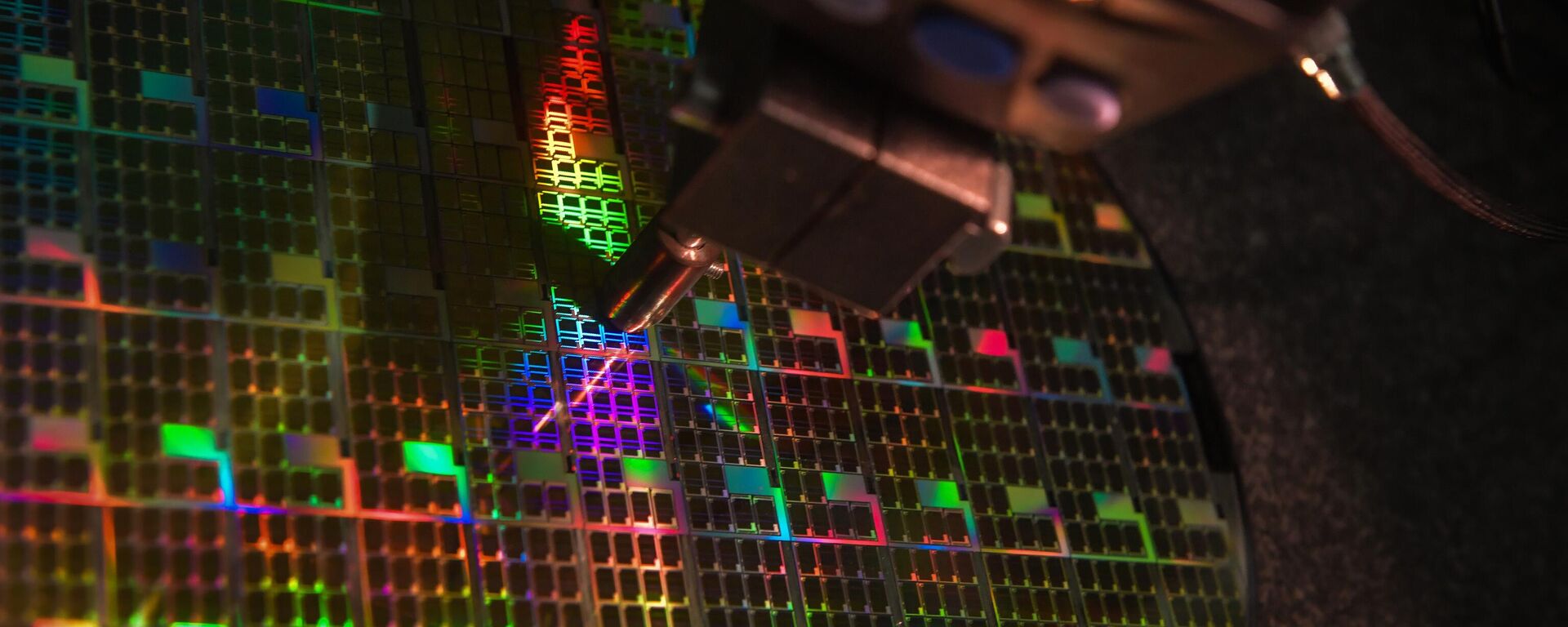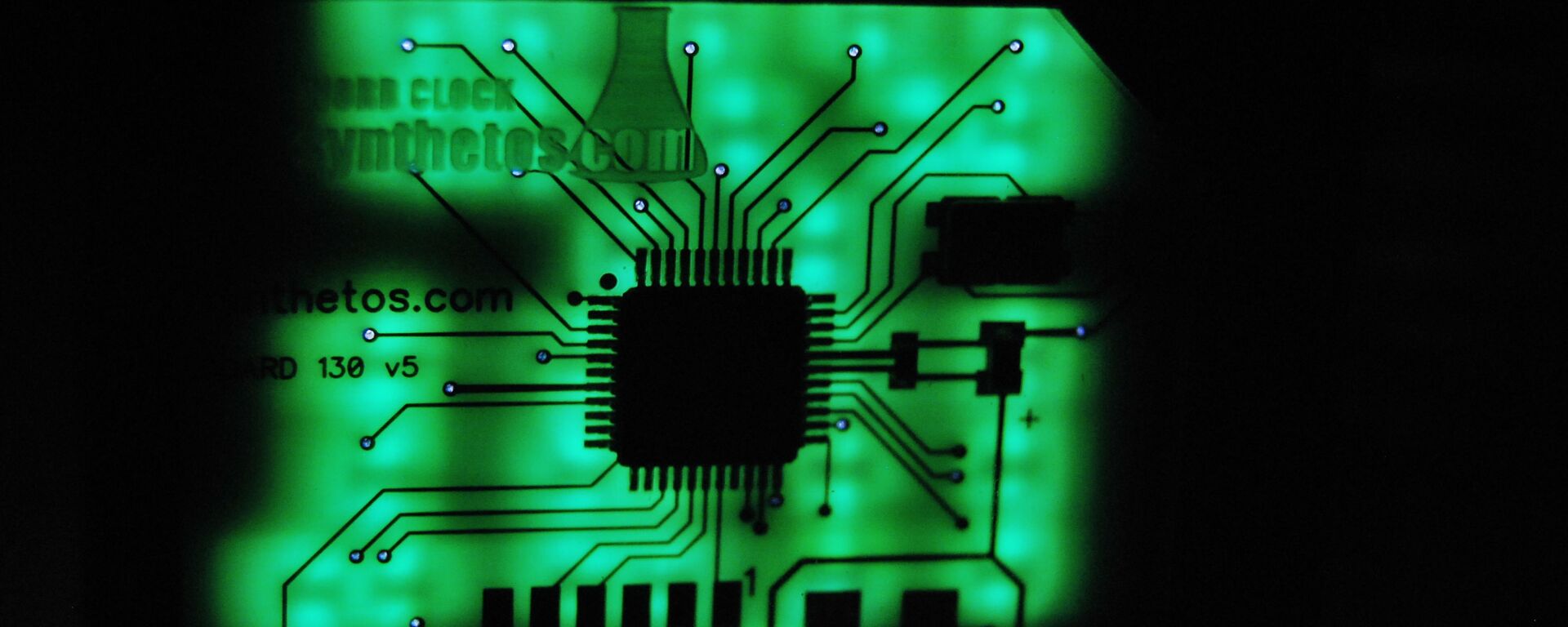https://sputnikglobe.com/20230815/biden-restrictions-on-chinese-ai-investments-likely-to-backfire--have-little-impact-on-china-1112597756.html
Biden Restrictions on Chinese AI Investments Likely to Backfire & Have Little Impact on China
Biden Restrictions on Chinese AI Investments Likely to Backfire & Have Little Impact on China
Sputnik International
The United States is shooting itself in the foot and self-destructively damaging its own high tech economic growth by banning investments by American companies in Chinese artificial intelligence capabilities, experts told Sputnik.
2023-08-15T00:10+0000
2023-08-15T00:10+0000
2023-08-15T00:10+0000
analysis
joe biden
earl rasmussen
ivan eland
china
russia
artificial intelligence (ai)
science & tech
https://cdn1.img.sputnikglobe.com/img/07e7/07/1d/1112244211_0:159:3077:1890_1920x0_80_0_0_5c0909153eee5f3290ba070150401f48.jpg
Last week, US President Joe Biden signed an executive order restricting US companies from investing in Chinese artificial intelligence (AI) capabilities and technologies - including semiconductors and quantum computing. The Biden administration said the move is intended to prevent such technologies from enhancing Chinese military, intelligence and surveillance capabilities. In the executive order, Biden said his administration was concerned certain US investments may accelerate the development of products China could use against the United States. Retired US Army Colonel and international consultant Earl Rasmussen, former vice president of the Eurasia Center, described the new policy as "accelerated economic suicide." Due to the previous Biden chip ban, US companies are expected to lose up to $80 billion, Rasmussen added. "There is much discussion of decoupling from China for the US and Europe. This will likely have a much more adverse impact on the US and Europe than China," Rasmussen said. Independent Institute Center for Peace and Liberty Director Ivan Eland believes that while they may impede Chinese capabilities somewhat, such limits will also curb the free flow of information and could slow US innovation. Not to mention, China is likely to retaliate, he added. "China is likely to respond, which compounds the US self-induced wound. For example, bans on rare earth minerals," Eland told Sputnik. "They may also respond by making other economic and investment/trade deals where they can, once again hurting US companies."Retired Brown University Assistant Professor of Economics Barry Friedman warned that US companies will not get the benefit of learning from Chinese production operations and developing cost-effective components for sale or use at home and third countries. Little Impact on ChinaRasmussen said the executive order is more a move to limit Chinese growth than it is regarding US national security, but it is likely to have minimal effect. A report from the US-based Center for Security and Emerging Technology points out that Chinese investors remain the dominant investors in Chinese AI companies. Moreover, despite all these restrictions, China remains the global manufacturing engine, he added, further predicting that China will continue its partnership with the global south to assist in nurturing economic development and expanding their share of the global market. Friedman said there are ways China can circumvent the restrictions. "There could be ways to purchase advanced technology built into industrial products and traded in shadowy 'wholesale' markets. Example, the reports of Haas precision-machining tools and various semiconductors purchased through hidden transactions on the international market despite sanctions on direct sales to Russia," Friedman said.Political commentator Alex Krainer, founder of Krainer Analytics, said the move is a shortsighted sign of desperation. Alan Tonelson, a long-time national security analyst who blogs at RealityChek, doubts the new measures will have much of an impact on China’s military capabilities. "Unfortunately, the new US curbs are still too narrowly drawn to slow China's military-related technology development significantly over time," he said. Tonelson also said China has too much to lose to respond aggressively. In principle, Beijing retains formidable retaliatory capabilities in areas like rare earths and other critical minerals, but the US has leverage too given China is struggling to generate adequate growth and employment, Tonelson added. Former London merchant banker, US financial analyst and columnist Martin Hutchinson, said the new policy will not produce any significant results. China’s most effective retaliation to Biden's move would be to cut off rare earth supplies, but that could backfire, Hutchinson argued, saying there are other unexploited sources for these materials outside of China.
https://sputnikglobe.com/20230808/cruel-realities-await-us-partners-in-anti-china-semiconductor-trade-wars-1112447346.html
https://sputnikglobe.com/20230704/china-to-restrict-export-of-semiconductor-manufacturing-metals-1111659846.html
china
russia
Sputnik International
feedback@sputniknews.com
+74956456601
MIA „Rossiya Segodnya“
2023
Sputnik International
feedback@sputniknews.com
+74956456601
MIA „Rossiya Segodnya“
News
en_EN
Sputnik International
feedback@sputniknews.com
+74956456601
MIA „Rossiya Segodnya“
Sputnik International
feedback@sputniknews.com
+74956456601
MIA „Rossiya Segodnya“
us, biden administration, biden restrictions on chinese ai investments,
us, biden administration, biden restrictions on chinese ai investments,
Biden Restrictions on Chinese AI Investments Likely to Backfire & Have Little Impact on China
WASHINGTON (Sputnik) - The United States is shooting itself in the foot and self-destructively damaging its own high tech economic growth by banning investments by American companies in Chinese artificial intelligence (AI) capabilities, experts told Sputnik.
Last week, US President Joe Biden signed an executive order restricting US companies from investing in Chinese artificial intelligence (AI) capabilities and technologies - including semiconductors and quantum computing.
The Biden administration said the move is intended to prevent such technologies from enhancing Chinese military, intelligence and surveillance capabilities. In the executive order, Biden said his administration was concerned certain US investments may accelerate the development of products China could use against the United States.
Retired US Army Colonel and international consultant Earl Rasmussen, former vice president of the Eurasia Center, described the new policy as "accelerated economic suicide."
"While the decision(s) are aimed to limit Chinese growth, they will likely impact the US and European economies greater. It is estimated that 70,000 US companies may be adversely impacted," Rasmussen told Sputnik.
Due to the previous Biden chip ban, US companies are expected to lose up to $80 billion, Rasmussen added.
"There is much discussion of decoupling from China for the US and Europe. This will likely have a much more adverse impact on the US and Europe than China," Rasmussen said.
"Europe is already suffering from following the US lead in sanctions directed towards Russia, combine this [with] decoupling from China and we will only see an even greater economic death spiral."
Independent Institute Center for Peace and Liberty Director Ivan Eland believes that while they may impede Chinese capabilities somewhat, such limits will also curb the free flow of information and could slow US innovation. Not to mention, China is likely to retaliate, he added.
"China is likely to respond, which compounds the US self-induced wound. For example, bans on rare earth minerals," Eland told Sputnik. "They may also respond by making other economic and investment/trade deals where they can, once again hurting US companies."
Retired Brown University Assistant Professor of Economics Barry Friedman warned that US companies will not get the benefit of learning from Chinese production operations and developing cost-effective components for sale or use at home and third countries.
Rasmussen said the executive order is more a move to limit Chinese growth than it is regarding US national security, but it is likely to have minimal effect. A report from the US-based Center for Security and Emerging Technology points out that Chinese investors remain the dominant investors in Chinese AI companies.
"Between 2015 and 2021, at least 71% of the transaction value and 92% of the investment transactions came from Chinese investors. Hence, it is doubtful that the new restrictions will have any serious and long lasting impact," he said.
Moreover, despite all these restrictions, China remains the global manufacturing engine, he added, further predicting that China will continue its partnership with the global south to assist in nurturing economic development and expanding their share of the global market.
Friedman said there are ways China can circumvent the restrictions.
"There could be ways to purchase advanced technology built into industrial products and traded in shadowy 'wholesale' markets. Example, the reports of Haas precision-machining tools and various semiconductors purchased through hidden transactions on the international market despite sanctions on direct sales to Russia," Friedman said.
Political commentator Alex Krainer, founder of Krainer Analytics, said the move is a shortsighted sign of desperation.
"I've gotten used to the zealots around Biden being long on ideology and short on all other talents, so I find it easy to believe they're just grasping at straws to show off some toughness and giving themselves some shiny negotiating chips, but I very much doubt that the Chinese are losing any sleep over this," Krainer told Sputnik.
Alan Tonelson, a long-time national security analyst who blogs at RealityChek, doubts the new measures will have much of an impact on China’s military capabilities. "Unfortunately, the new US curbs are still too narrowly drawn to slow China's military-related technology development significantly over time," he said.
Tonelson also said China has too much to lose to respond aggressively. In principle, Beijing retains formidable retaliatory capabilities in areas like rare earths and other critical minerals, but the US has leverage too given China is struggling to generate adequate growth and employment, Tonelson added.
Former London merchant banker, US financial analyst and columnist Martin Hutchinson, said the new policy will not produce any significant results. China’s most effective retaliation to Biden's move would be to cut off rare earth supplies, but that could backfire, Hutchinson argued, saying there are other unexploited sources for these materials outside of China.




